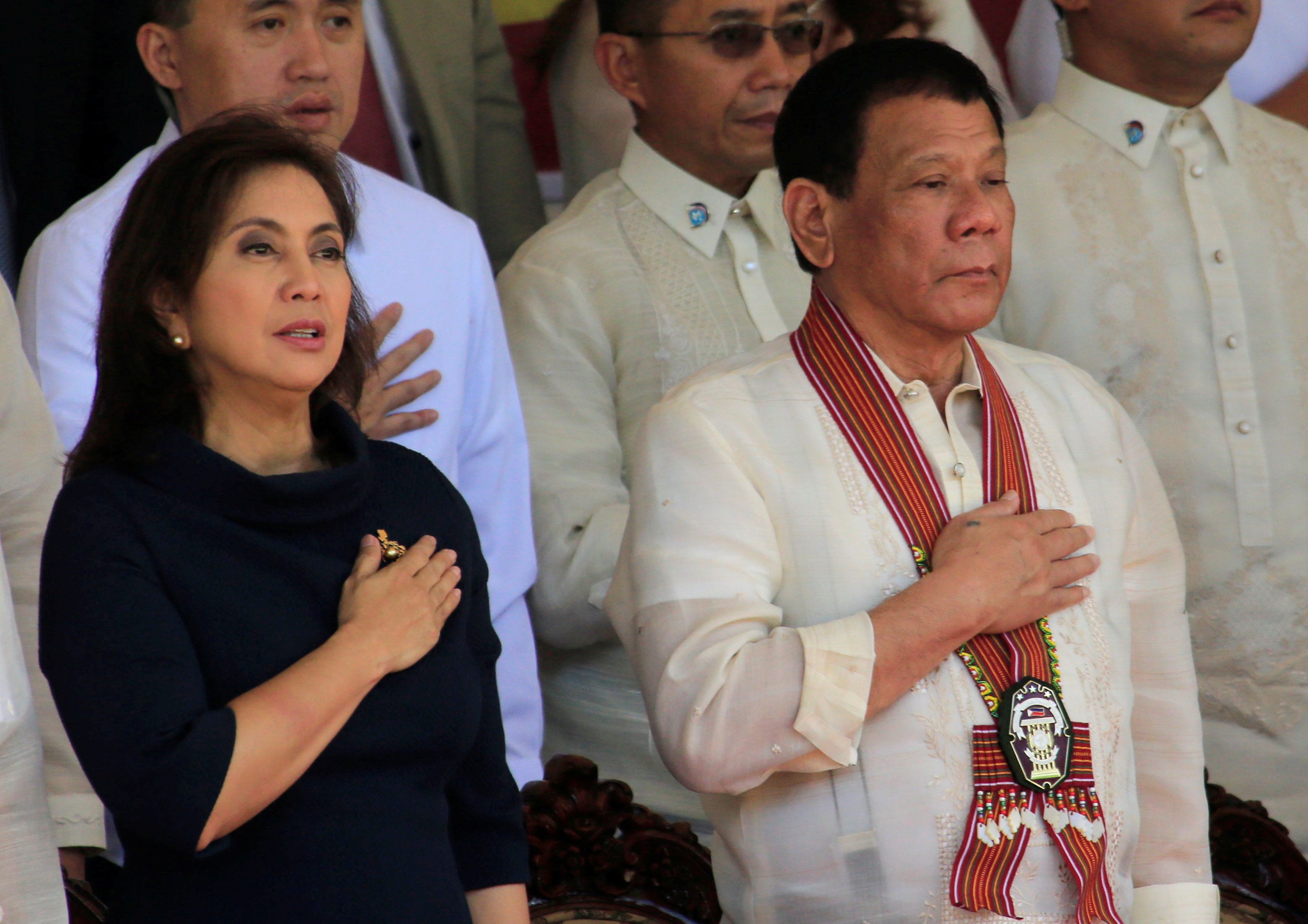Europe
November 18, 2020
Duterte's typhoon troubles: As the Philippines struggles with the aftermath of Typhoon Vamco, which killed almost 70 people and submerged parts of the main island of Luzon, tough-talking President Rodrigo Duterte defended himself from accusations of poor disaster management by lashing out at Vice President Leni Robredo on live TV. The president, unleashing a barrage of sexist remarks at the Veep, falsely claimed that his political rival Robredo — the Philippines elects the VP separately from the president — had criticized him for being absent at the height of the storm, when Duterte was (virtually) attending a regional meeting of Southeast Asian leaders. Robredo, for her part, called the president a misogynist, and said she's not competing with him after Duterte threatened to be her "nightmare" if she ran in the next presidential election. We're watching to see if the typhoon disaster — or Duterte's meltdown about it — will make a dent in his popular support, which remains strong despite growing discontent over his handling of this latest crisis and the coronavirus pandemic.
Things go south (again) for North Macedonia: The small Balkan country once known clunkily as the "Former Yugoslav Republic of Macedonia" just can't seem to catch a break. Two years ago, the country finally got itself on the (longshot) path to EU membership by agreeing to call itself "North Macedonia", resolving a long-running name dispute with its southern neighbor, Greece. But with the Greeks out of the way, now Skopje (the North Macedonian capital) is running into problems with its eastern neighbor — Bulgaria. The Bulgarians say they will veto any North Macedonian EU accession talks until the two iron out their own linguistic and ethnic disputes. Among other things, Bulgaria wants the North Macedonians to recognize Macedonian as a dialect of Bulgarian, rather than an independent language. Since EU accession talks require the unanimous consent of current member states, the North Macedonians are up against a wall again. And to make matters worse for Skopje, some other EU members who are skeptical of expanding the bloc at all are right now reported to be quietly OK with the Bulgarian roadblock.
Middle East starts US transition: While President Trump still refuses to concede to President-elect Joe Biden in the US election, leaders in the Middle East are quietly preparing for the transition of power, even as US Secretary of State Mike Pompeo tours the region this week. Pompeo is scheduled to visit an Israeli settlement in the West Bank, which analysts view as a parting gift to Prime Minister "Bibi" Netanyahu, who seeks to normalize the settlements over Palestinian objections that they are illegal (and also likely an attempt by Pompeo to boost his own street cred with evangelicals as he eyes his post-Trump political career). Indeed, the Trump's administration's proposed peace plan for the Middle East was overwhelmingly rejected by the Palestinians because it would have allowed Israel to annex a third of the West Bank. Meanwhile, the Palestinian Authority has now agreed to resume ties with Israel that had been suspended for months over the annexation plans. Are both sides ready to move on from Trump? Biden is widely expected to return to the Obama administration's Middle East policy, which supported Israel but called for a two-state solution. That's bad news for Bibi and offers a glimmer of hope for the Palestinians, whose position has suffered under Trump. What's in store for the region with Biden in the White House?More For You
People in support of former South Korean President Yoon Suk Yeol rally near Seoul Central District Court in Seoul on Feb. 19, 2026. The court sentenced him to life imprisonment the same day for leading an insurrection with his short-lived declaration of martial law in December 2024.
Kyodo
65: The age of former South Korean President Yoon Suk Yeol, who was sentenced to life in prison on Thursday after being found guilty of plotting an insurrection when he declared martial law in 2024.
Most Popular
In an era when geopolitics can feel overwhelming and remote, sometimes the best messengers are made of felt and foam.
Hungarian Prime Minister Viktor Orban holds an international press conference in Budapest, Hungary, January 5, 2026.
REUTERS/Bernadett Szabo/File Photo
The Hungarian election is off to the races, and nationalist Prime Minister Viktor Orbán is facing his most serious challenger in 16 years.
How people in G7 and BRICS countries think their policies will effect future generations.
Eileen Zhang
Does skepticism rule the day in politics? Public opinion data collected as part of the Munich Security Conference’s annual report found that large shares of respondents in G7 and several BRICS countries believed their governments’ policies would leave future generations worse off.
© 2025 GZERO Media. All Rights Reserved | A Eurasia Group media company.
